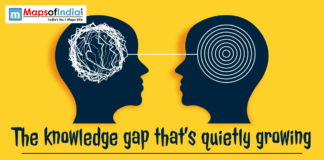The generation born between 1997 and 2012 is known as Gen Z. They are transforming the career landscape with bold, value-driven choices. As they become the new workforce of the country, the priorities of the workplace are changing. They prioritize flexibility, purpose, and personal growth over traditional markers like high salaries or corporate titles. With their fresh perspective, Gen Z is reshaping what success means.
Gen Z’s Career Priorities
1. Work-Life Balance
Gen Z gives importance to mental health and personal time. So they focus on jobs with flexible hours or remote options to avoid burnout. They give importance to hobbies, relationships, and self-care. Believing work should enhance life, not dominate it.
Many Gen Z workers are doing freelancing work, which allows them to make their own schedules and work from cafes or at home.
They are sparking conversations on social media about “quiet quitting” and setting boundaries to protect personal time. Inspiring peers to demand better workplace policies.
2. Skills Over Degrees
Gen Z trusts skill enhancement courses over a degree. Focusing on practical abilities like coding or digital marketing. With the fast-changing technology landscape, they see skills as a quicker path to jobs, especially as AI reshapes every industry, making some degrees less relevant.
Online learning course providers are popular among Gen Z for learning skills. This helps them land tech roles without a four-year degree.
This approach has changed what companies want from employees. They are also prioritizing skills over any college degree.
3. Purpose-Driven Work
Gen Z gives importance to the roles that give meaning to their work. Youth nowadays try to find purpose in work more than monetary benefits. They’re drawn to companies that align with their values and reject those focused solely on profits in favour of meaningful missions.
Many join startups that work toward sustainability. With the presence of social media, youth have been more attracted to this kind of job.
4. Flexibility and Remote Work
Gen Z prioritizes flexibility in their work. Having a vacation now and then. Giving time to their families is an important aspect of their lives. That’s why many youth prefer working remote jobs. This gives them the freedom they need.
Co-working spaces in smaller cities are buzzing with Gen Z professionals collaborating on projects via online platforms. They measure success by freedom and experiences not proximity to corporate headquarters, pushing employers to adapt.
5. Rejecting Traditional Leadership Roles
Gen Z tries to stay away from the management role and focuses more on adding value through their work. They see leadership as a pressured and stressful job which gives them less freedom and restricts their lifestyle.
Many are doing freelancing work or participating in the gig economy which may be one of the reasons why youth are not seeking management jobs.
6. Thriving in the Gig Economy
Gen Z focuses more on freelancing and side hustles. using gig platforms for earning side money and using their skill which can be learned from an online platform. Gigs offer financial independence and flexibility which gives freedom of work and does not tie them down to any work commitment.
TikTok creators or Instagram influencers often earn through brand deals. Turning hobbies into monetary profits. Gigs allow Gen Z to experiment with passions from podcasting to Etsy shops blurring the lines between work and play.
7. Entrepreneurship as a Career Path
Gen Z wants to be their bosses. Because of this many youngsters are choosing businesses as their career path. The boom in startup culture is seen as one of the effects of this trend.
Young founders are also focused on creating meaningful businesses rather than becoming cash-grab companies. To become successful they are using available technological resources from social media to AI. The boom in AI has made it easier to run a business by oneself.
8. Leveraging Social Media for Career Building
Gen Z uses social media for their branding. Social media helps them in every way from marketing to getting ideas. For every work there is an online course and an AI agent is present online.
There are many examples present where people get jobs because they have shown their skills on an online platform. Like a fan made the Spider-Man in Spider-Verse trailer in Lego animation and that guy got scouted by Sony.
9. Demanding Tech Integration
Gen Z expects that the workplace will also include technological aspects. As they had exposure to digital technologies from an early age they are comfortable in using these tools and working with them.
Thai fish toward digitalization has also changed how workplaces operate. People need to be upskilled to keep their jobs.
10. Focusing on Creativity and Innovation
Gen Z prioritizes roles that allow for creative expression. Look for jobs where they can innovate and experiment. They value originality. wanting to leave a unique mark with their skills and avoid repetitive tasks.
Many pursue careers in creative fields like game design or digital art. Which creates immersive experiences for brands or startups. Their creative output on platforms like Behance or Dribble inspires trends that shape global aesthetics in 2025.
Challenges and Opportunities
Challenges
There are Skill Gaps. Many lack advanced tech skills. needing accessible training to compete in AI-driven fields. Balancing ambition with well-being is tough. Due to this some are facing stress from gig work or job hunts.
Employer pushback. Some companies resist flexible policies. This repels the upcoming Gen Z workforce. There are also access barriers present. Rural youth have limited internet access and resources present which hinder their chances.
Opportunities
Upskilling Initiatives launched by the government. Programs launched by the government like Skill India which offer free courses in every field. This helps to upskill youth and helps. Companies are adopting hybrid models and DEI policies to attract Gen Z. This change in point of view is helpful to attract a new workforce.
Social media and e-learning tools provide global access. levelling the playing field for rural youth. Educational reforms integrate vocational training. Preparing Gen Z for diverse careers.
Conclusion
Gen Z are redefining career goals with their new approach. They are prioritizing a balance between work and family. From gig work to startups Gen Z is creating paths that give importance to their passions and values. Social media has become a helpful tool. Making use of available platforms to increase job opportunities. There are challenges present like skill gaps. Rural and urban disparity. But youth is overcoming those challenges. As they navigate the upcoming job market Gen Z’s vision rooted in balance, impact, and growth promises a future where careers are as diverse and dynamic as they are inspiring a new definition of success.





